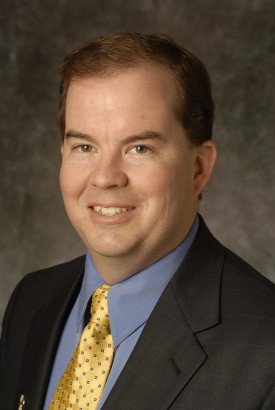
Brian Schilling
Each year, Rutgers Cooperative Extension, a unit of the New Jersey Agricultural Experiment Station (NJAES), honors faculty and staff for their outstanding work and outreach through their programs and support. The winners for 2012 received their awards at the joint department luncheon at the Cook Campus Center on Nov. 27.
Brian Schilling, assistant extension specialist in agricultural policy in the Department of Agricultural, Food, and Resource Economics, was the recipient of two separate awards during the annual awards event. Schilling received the “Merle V. Adams Award,” named for long-time chair of the Agricultural and Resource Management Specialists department, which is awarded to a junior extension specialist faculty for outstanding achievements within Extension. He also received the “Specialist of the Year Award,” which is presented to an extension specialist recognized by the agents in the departments of 4-H Youth Development, Family and Community Health Sciences, and Agricultural and Resource Management Agents. This particular award recognizes the specialist for specific accomplishments and support to those departments.
Schilling works on a wide range of programs dealing with impacts of farmland preservation, the development of agritourism enterprises, New Jersey’s farmland assessment statute, and promoting emergency preparedness and food industry continuity during large-scale emergencies. He also maintains an active presence in New Jersey’s food and agricultural communities, serving on several boards, committees, and task forces. In addition to his Extension and research responsibilities, he teaches an undergraduate-level course, provides guest lectures on agricultural and food issues in various departments at the School of Environmental and Biological Sciences, and directs graduate thesis work.
The following vote of confidence for the “Specialist of the Year Award” submitted by a colleague sums up how well perceived Schilling is by his peers: “Always available, willing and cooperative. Knowledge on a broad range of policy topics impacting ag at all levels and working closely with leadership groups to use science-based decisions in policy development.”

